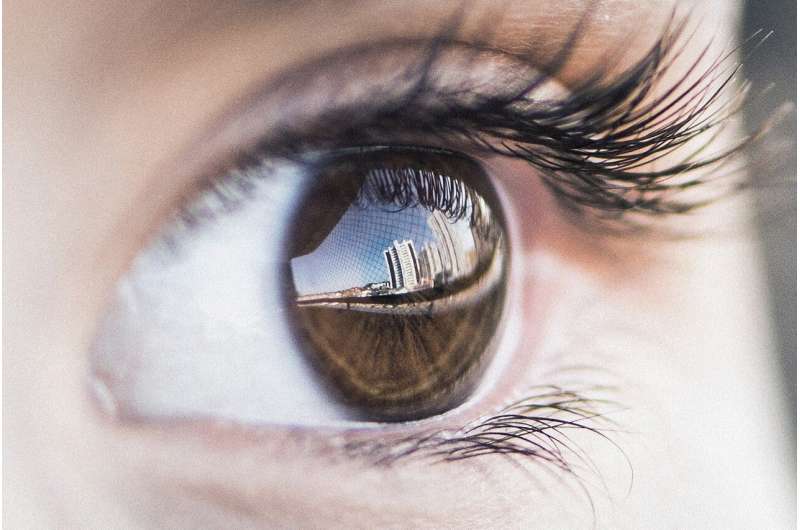A frozen leap forward for age-related macular degeneration stem cell-based therapy

Scientists at UC Santa Barbara, University of Southern California (USC), and the biotechnology company Regenerative Patch Technologies LLC (RPT) have reported new methodology for preservation of RPT’s stem cell-based therapy for age-related macular degeneration (AMD).
The new research, recently published in Scientific Reports, optimizes the conditions to cryopreserve, or freeze, an implant consisting of a single layer of ocular cells generated from human embryonic stem cells supported by a flexible scaffold about 3×6 mm in size. This implant is currently in clinical trial for the treatment of AMD, the leading cause of blindness in aging populations. The results demonstrate that the implant can be frozen, stored for long periods and distributed in frozen form to clinical sites where it is designed to be thawed and immediately implanted into the eyes of patients with macular degeneration. The capacity to cryopreserve this and other cell-based therapeutics will extend shelf life and enable on-demand distribution to distant clinical sites, increasing the number of patients able to benefit from such treatments.
The report published by lead author Britney Pennington and colleagues achieves a milestone that brings ocular implants one step closer to the clinic. “This is the first published report that demonstrates high viability and function of adherent ocular cells following cryopreservation, even after long-term frozen storage,” said Pennington, head of process development at RPT and assistant project scientist at UC Santa Barbara.
The study demonstrates that cryopreserved implants are comparable to their non-cryopreserved counterparts in appearance, gene expression and cellular function. “It’s a major advance in the development of cell therapies using a sheet of cells, or a monolayer of cells, because you can freeze them as the final product and ship them all over the world,” said UCSB professor and senior author Dennis O. Clegg.
Source: Read Full Article
